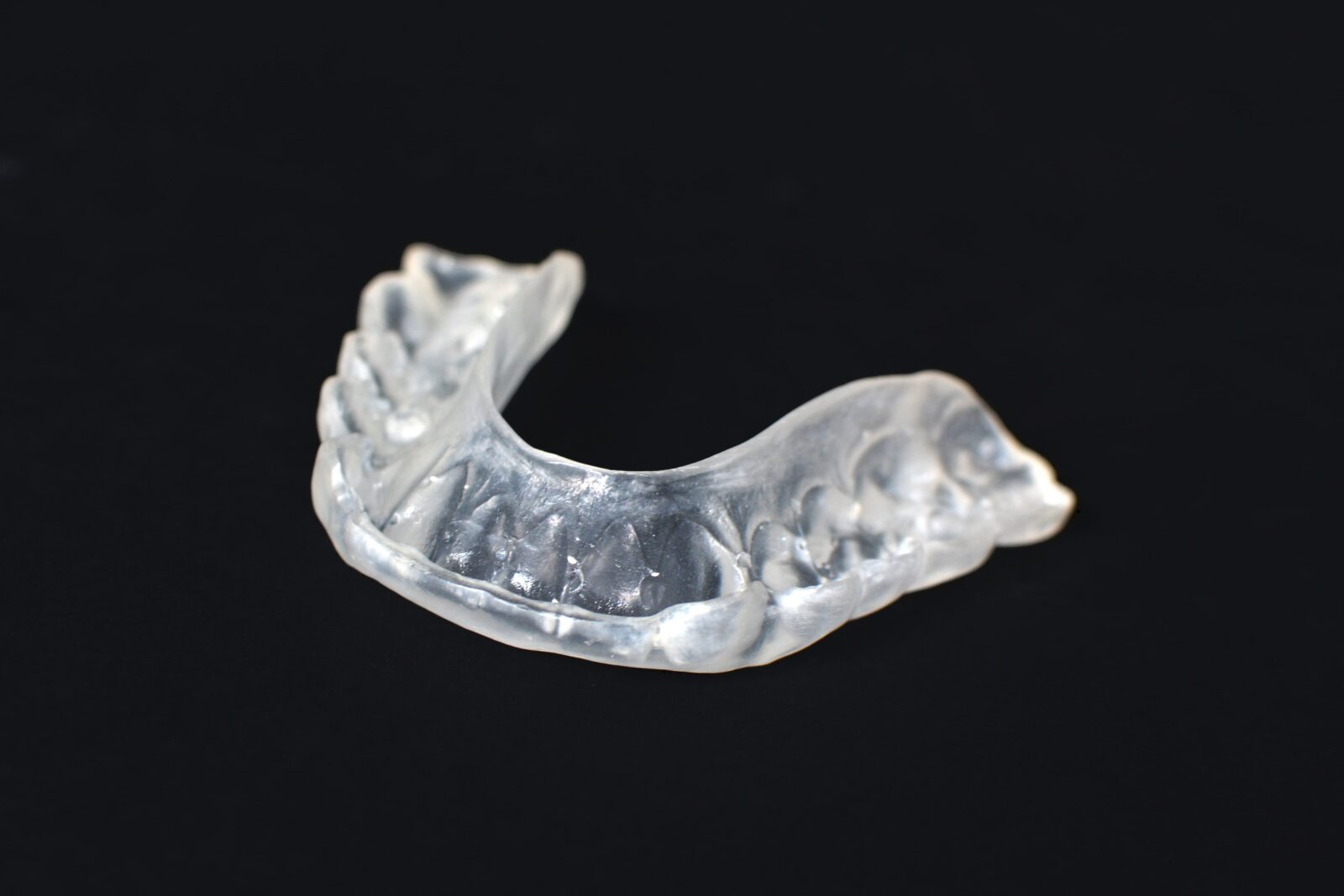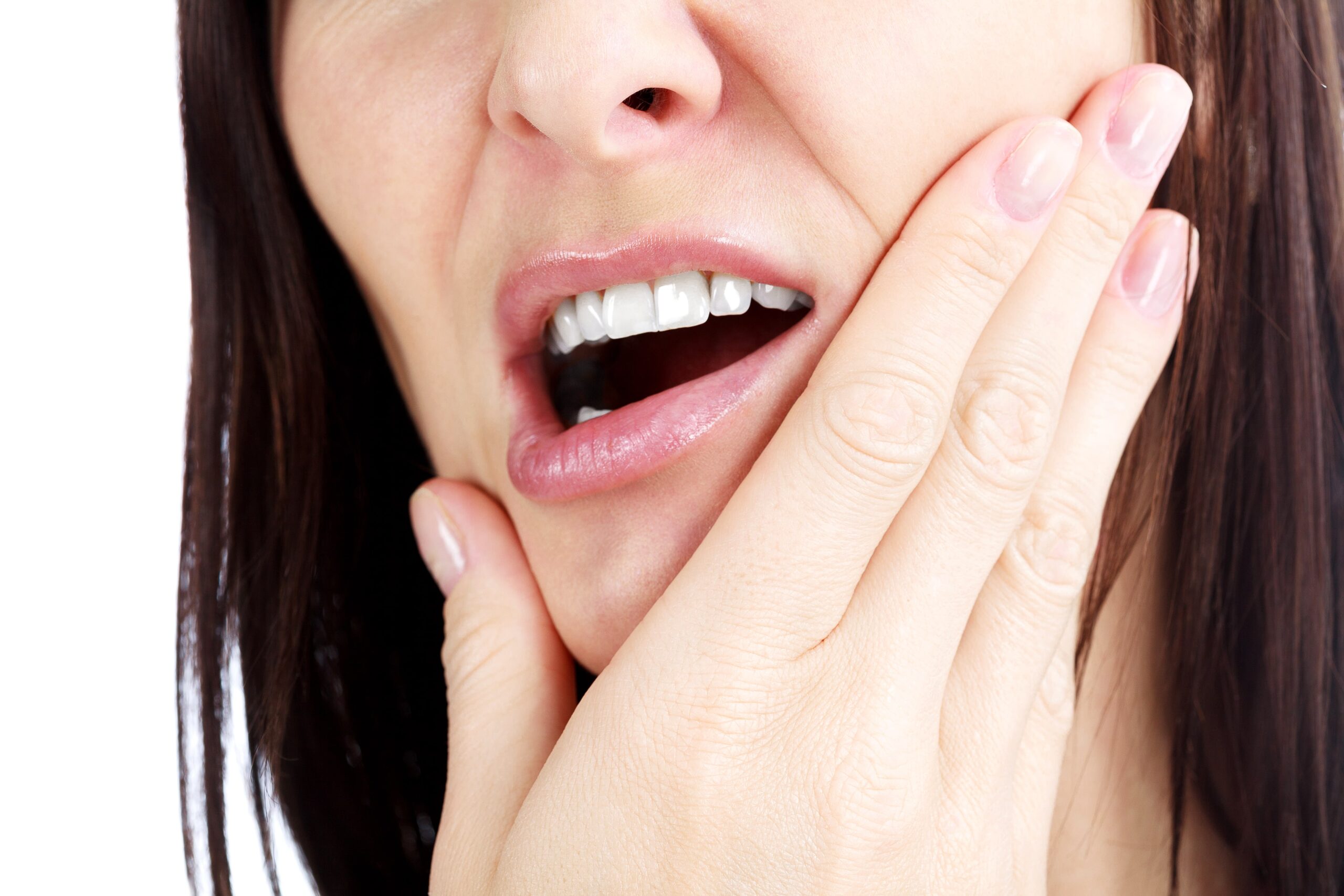Teeth grinding, also known as bruxism, is a common dental condition that affects millions of people worldwide. Often occurring unconsciously during sleep or as a result of stress, teeth grinding can lead to various oral and overall health problems if left untreated. In this blog, we will discuss seven signs that may indicate you are grinding your teeth, helping you recognize the problem early and seek appropriate treatment.
Signs of Teeth Grinding
Frequent Morning Headaches

One of the most common signs of teeth grinding is waking up with frequent morning headaches. During the night, when many people unknowingly grind their teeth, excessive pressure is exerted on the jaw muscles, leading to tension and discomfort. This persistent clenching and grinding can result in muscle fatigue and trigger headaches that typically manifest upon waking in the morning. The headaches are often a result of the prolonged muscle strain and tension endured while grinding, and they can serve as an important early warning sign of bruxism.
Sore Jaw Muscles
Sore jaw muscles can be a significant indicator of teeth grinding or bruxism. When a person grinds their teeth, whether during sleep or due to stress, the constant clenching and grinding exert excessive force on the muscles responsible for controlling the jaw’s movement. Over time, this relentless strain can lead to muscle fatigue and discomfort, resulting in soreness in the jaw area. Individuals who grind their teeth often wake up with this discomfort, and it can persist throughout the day, making it a noticeable and bothersome symptom.
Teeth Sensitivity
Tooth sensitivity can be a clear indication that you may be grinding your teeth. When bruxism occurs, the constant grinding and clenching action can wear down the protective enamel that covers your teeth. As the enamel thins, the sensitive dentin layer underneath becomes more exposed, leading to increased sensitivity to temperature changes, particularly hot and cold foods and drinks. If you notice heightened tooth sensitivity, especially if it’s a new or unusual sensation, it’s important to consider the possibility of teeth grinding as the cause.
Cracked or Chipped Teeth
Another visible sign of teeth grinding is cracked or chipped teeth. The constant and excessive pressure exerted on the teeth during grinding can weaken their structure over time, making them more susceptible to fractures or chips. These dental issues are often more noticeable than other signs, as they result in visible damage to the enamel. If you find that you have suddenly acquired cracked or chipped teeth, particularly if you haven’t experienced them before, it is highly likely that bruxism is the underlying cause.
Ear Pain
Ear pain can sometimes be an unexpected sign that you may be grinding your teeth. This connection may not be immediately apparent, but it is often linked to the temporomandibular joint (TMJ), which connects your jaw to your skull and plays a crucial role in biting and chewing. When you grind your teeth, the excessive pressure and strain on the jaw joint can radiate discomfort or pain to surrounding areas, including the ears. Consequently, individuals who grind their teeth may experience earaches or aching sensations in the ear region. If you’re experiencing unexplained ear pain or discomfort, it’s worth considering the possibility of bruxism as an underlying cause and seeking professional dental evaluation to address the issue effectively and alleviate the associated symptoms.
Disrupted Sleep Patterns
Disrupted sleep patterns can be a significant sign that you may be grinding your teeth, even if you are not consciously aware of it. Teeth grinding typically occurs during sleep, and the grinding noises can be loud enough to wake you or disturb your sleep partner. If you find that you wake up frequently during the night or experience restless sleep, it could be a result of the involuntary grinding and clenching of your teeth. Additionally, bruxism can lead to micro-awakenings throughout the night, preventing you from entering deep, restorative sleep stages. These disruptions can leave you feeling tired and fatigued during the day, further underscoring the need to address teeth grinding to improve your overall sleep quality and well-being.
Indentations on Your Tongue
One less common but still noteworthy sign of teeth grinding is the presence of indentations or scalloping on the sides of your tongue. These tongue markings are a result of the continuous pressure applied to the tongue as it presses against the inside of your teeth during teeth grinding or clenching. While not everyone with bruxism will exhibit this symptom, the presence of tongue indentations can be a helpful clue for both individuals and healthcare professionals in identifying the condition. Recognizing this subtle but distinctive sign can prompt individuals to seek dental assessment and necessary intervention to address teeth grinding, helping to prevent potential dental complications and improve overall oral health.
How Dentists Treat Teeth Grinding
Dentists diagnose teeth grinding, also known as bruxism, through a comprehensive evaluation that combines various clinical and diagnostic methods. They start by examining the patient’s oral cavity, looking for telltale signs such as worn tooth surfaces, chips, or fractures. Dentists also inquire about the patient’s dental and medical history, including any reported symptoms like jaw pain, headaches, or tooth sensitivity. Physical assessments of the jaw muscles and temporomandibular joint (TMJ) are conducted to check for tenderness or dysfunction. Additionally, occlusal analysis helps assess the alignment of the upper and lower teeth during biting and chewing. In some cases, dentists may use specialized equipment like electromyography (EMG) to measure muscle activity during sleep, confirming the presence of bruxism. This comprehensive approach enables dentists to diagnose teeth grinding accurately and tailor an appropriate treatment plan for each patient’s unique needs.

Dentists employ various strategies to treat teeth grinding, or bruxism, depending on the severity and underlying causes. A common treatment involves the fabrication of a custom-fitted night guard or splint. These dental appliances act as a protective barrier between the upper and lower teeth, preventing them from grinding against each other during sleep. Night guards not only safeguard teeth from further damage but also alleviate symptoms like jaw pain and headaches.
Dentists may also recommend behavioral and lifestyle modifications, such as stress reduction techniques, relaxation exercises, and dietary changes. Managing stress, a prevalent trigger for bruxism, is a crucial aspect of treatment. In more severe cases or when stress-related bruxism persists, dentists may prescribe muscle relaxants, anti-anxiety medications, or other medications to manage symptoms. Long-term monitoring and follow-up appointments are typically part of the treatment plan to ensure its effectiveness and make any necessary adjustments.
Additionally, dental restorations like crowns or fillings may be required if teeth have suffered significant damage due to grinding. The choice of treatment depends on individual circumstances, and dentists work closely with patients to develop a tailored approach to address teeth grinding effectively.
Conclusion
Teeth grinding is a dental condition that can have far-reaching effects on your oral and overall health. Recognizing the signs early is crucial for seeking appropriate treatment and preventing further damage. If you experience any of the seven signs discussed in this blog, it’s essential to consult with a dentist. They can evaluate your condition, recommend treatment options, and help you prevent the complications associated with teeth grinding. Remember that addressing bruxism not only preserves your oral health but also improves your overall quality of life by reducing pain and discomfort.



